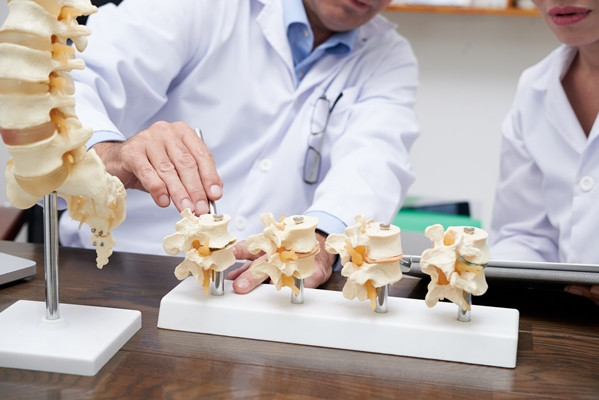Diarrhea
Introduction and Facts
Diarrhea is a common condition that varies, both in terms of cause and degree of severity. Evaluation of diarrhea varies depending on duration, severity, and the presence of certain concurrent symptoms. Diarrhea is an increase in water content in feces due to an imbalance in the normal functioning of the physiological processes of the small and large intestines that are responsible for the absorption of nutrients, ions, water and other substrates. Acute diarrhea is described as acute symptoms in the form of liquid or watery bowel movements 3 or more times a day, which lasts for 14 days or less. However, chronic or persistent diarrhea is characterized if its onset lasts more than 14 days. Acute diarrhea is often caused by infection. Non-infectious etiologies become more common as the duration of diarrhea increases and becomes chronic.
Pathophysiology
Diarrhea is caused by reduced water absorption by the intestine or increased water secretion. The majority of cases of acute diarrhea are caused by infection. Chronic diarrhea is generally categorized into three groups; watery diarrhea, fatty (malabsorption), or infectious. Another way to classify the pathophysiology of diarrhea is to divide it into secretory diarrhea and osmotic diarrhea.
The basic mechanism that causes diarrhea is osmotic disturbance (food that cannot be absorbed will cause the osmotic pressure in the intestinal cavity to increase, resulting in a shift of water and electrolytes into the intestinal cavity, excessive intestinal contents resulting in diarrhea). Apart from that, it causes secretion disorders due to toxins in the intestinal wall, so that the secretion of water and electrolytes increases and then causes diarrhea. Intestinal motility disorders resulting in hyperperistalsis.
The mechanism of diarrhea includes increased secretion or decreased absorption of fluids and electrolytes from intestinal mucosal cells and exudates originating from inflammation of the intestinal mucosa.
Etiology
There are several causes of diarrhea, namely:
- Infection. Infections due to viruses (rotavirus), bacteria (E. coli), or parasites (Giardia) are common causes of diarrhea.
- Food intolerance. Some people may experience diarrhea as a reaction to certain foods, such as lactose intolerance.
- Drugs. Some medications, such as antibiotics, can cause diarrhea as a side effect.
- Chronic disease. Diseases such as Crohn's disease, ulcerative colitis, and irritable bowel syndrome (IBS) often cause diarrhea.
- Stress and anxiety. Psychological conditions can affect the digestive system and cause diarrhea.
Signs and symptoms
Some signs and symptoms of diarrhea include:
- Cramps or stomach pain
- Bloating
- Nauseous
- Vomit
- Fever
- Blood in the stool
- Mucus in the stool
- Urgent need to defecate
Here are some signs and symptoms that need to be paid attention to and require immediate medical attention, such as:
- Dehydration
- Severe pain in the abdomen or rectum
- Black stools or lots of blood
- High fever above 39oC
- Doesn't get better after 2 days
Diagnosis
When someone experiences symptoms of diarrhea, the doctor will usually carry out several tests to confirm the diagnosis and find out the exact cause of the diarrhea. Some of the examination steps are history taking, physical examination, and supporting examinations if necessary. During the history, the doctor will ask several questions regarding symptoms, onset, frequency, accompanying symptoms, and other questions to find out the cause and diagnosis. A physical examination is performed to evaluate the patient's general health. Usually on a physical examination the doctor will see signs of dehydration, increased bowel sounds, and other signs that lead to diarrhea. In general, patients with acute diarrhea will get better on their own and do not require laboratory tests or imaging. Stool cultures are necessary in patients with bloody diarrhea or severe illness to rule out bacterial causes. The presence of blood in the stool requires additional testing for Shiga toxin and lactoferrin. Patients who have recently taken antibiotics or been hospitalized will need testing for Clostridium difficile infection. Imaging is not performed in patients with acute diarrhea however, an abdominal CT scan may be necessary if the patient shows significant signs of peritonitis.
Medication and Treatments
Acute diarrhea usually goes away on its own, but the infection in acute diarrhea can last a long time. Management is generally supportive. In most cases, the best option for treatment of acute diarrhea is early use of oral rehydration therapy (ORT). Rehydration is done by providing fluids to replace the loss of fluids from the body. The fluid given is ORS which contains electrolytes and minerals or if you are severely dehydrated, you need rehydration with intravenous fluids (NaCl). Antibiotics or antiparasitics are given if diarrhea is caused by a bacterial or parasitic infection. Giving antibiotics and antiparasitics will not help diarrhea caused by a viral infection. If diarrhea is caused by side effects of medication, further evaluation is needed with the doctor in charge. Diarrhea caused by chronic diseases, such as irritable bowel syndrome (IBS), requires further consultation to control this condition.
References:
- Nemeth V, Pfleghaar N. Diarrhea. National Library of Medicine [Internet]. 2022 [cited 2024 Mar 26]. Available from: https://www.ncbi.nlm.nih.gov/books/NBK448082/
- Kementerian Kesehatan RI. Diare [Internet]. 2023 [cited 2024 Mar 27]. Available from: https://ayosehat.kemkes.go.id/topik-penyakit/penyakit-pencernaan/diare
- Guandalini S. Diarrhea. Medscape [Internet]. 2024 [cited 2024 Mar 28]. Available from: https://www.mayoclinic.org/diseases-conditions/diarrhea/symptoms-causes/syc-20352241
- Diarrhea [internet]. Available from: http://eprints.umm.ac.id/42562/3/jiptummpp-gdl-estilistia-50148-3-babii.pd




















